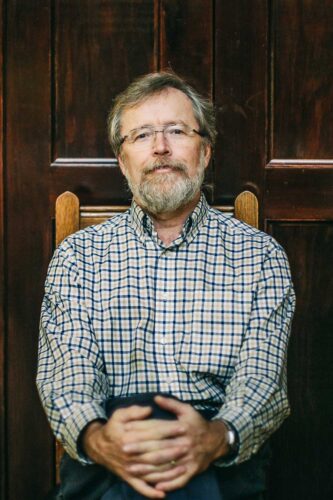
We need to have a serious conversation about when life begins.
It is a question that has very serious consequences for public policy. Chief Justice Tom Parker of the Alabama Supreme Court made it perfectly clear that the premise of the court’s recent decision regarding frozen embryos was based on religious doctrine, writing, “Even before birth, all human beings bear the image of God.”
Parker devoted eight pages of his opinion to Christian scripture and authors without a hint of recognition of differing religious viewpoints.
Note, people living in Biblical times did not think of conception the way we do. The genealogies of Jesus seldom mention mothers. Why? Aside from the patriarchal standards of the time, the assumption was that women were the fertile ground in which men planted their seed and hence children were descended from “the loins” of their fathers. Thus the author of Hebrews would claim that Levi “was still in the loins of his ancestors” generations before he was born.
Those like Parker like to claim that this country is founded on “Judeo-Christian” principles. I would note first that most Jews I know wish we would remove “Judeo” from that claim as they want nothing to do with most of the principles being so claimed. If the principles regarding conception were in fact inherited by Christianity from the Jewish tradition, then one would expect that Jewish tradition would show some evidence of treating the “unborn child” as a full human being with all associated rights. It does not. To the contrary, an injury that caused the loss of a fetus is not regarded as manslaughter in Hebrew scripture but as the loss of property (Exodus 21:22-25).
What is abundantly clear in that scriptural tradition is that life is associated with the breath of God. The creation tradition, Parker cites, couldn’t be clearer when the first human being “became a living being,” namely, when God “breathed into his nostrils the breath of life” (Genesis 2:7). It is most telling that the Chief Justice did not cite this particular verse of the creation tradition for he surely knows that it at least calls into question the whole notion of life beginning at conception if not undermining it altogether.
It is my most sincerely held religious belief that we are, as Parker also affirms, created in the image of God. And if we know anything about the created order, creation does not happen in a single moment, but through a creative process. Even if we take the Biblical story of creation as a literal account, which it surely is not, it is still a process over many days.
Psalm 139:13-15 has this beautiful image of our evolution in the womb: “You knit me together in my mother’s womb… intricately woven in the depths of the earth.” I love that image of God knitting us into being, much the way my wife knit a baby blanket for our first grandchild, every stitch made with love.
I suspect many on the left are reluctant to make a case for life beginning at birth instead of conception because they also understand that human pregnancy, whether at one month or nine, involves something fundamentally more than a fertilized egg. Upholding the sanctity of life, however, does not require that we be forced to choose between binary options. The beginning of life is truly something equally miraculous and mysterious.
We should not shy from affirming the life at each stage of development from zygote (the fertilized egg) to a fully developed fetus. At each and every one of those moments life is beginning and therefore should be regarded with utmost care and respect. But the blanket is not complete until the last stitch has been cast off and taken from the knitting needle. So I argue for the beginning of life as a process rather than an event, a process which does not end until the child is born. It is at that point, and only at that point, that what began months prior has now become a full human being, filled with the breath of life.
I fully expect U.S. laws to be neutral on religious doctrine. They should not promote any particular religious belief. That is why we have the First Amendment. The ruling of the Alabama Supreme Court is not only a threat to reproductive health — promoting one religious interpretation over another — it is a threat to religious freedom.